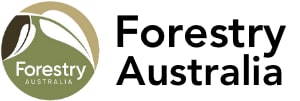
Study highlights need to rethink forest policy and management for preventing wildfires
MEDIA RELEASE
11 May 2021
Study highlights need to rethink forest policy and management for preventing wildfires A new study that found landscape spatial patterns and fire weather drove the severity of the 2019-20 Black Summer bushfires, not past timber harvesting, has been welcomed by the professional association representing some 1,000 scientific and professional forest land managers in Australia.
The Institute of Foresters of Australia and Australian Forest Growers President Bob Gordon said the study, ‘The severity and extent of the Australia 2019–20 Eucalyptus forest fires are not the legacy of forest management’, highlights the need for new ways of thinking about how Australia manages the risk of bushfires.
“There’s no doubt Australia has a wicked bushfire problem. There is no quick fix to this problem, however active and adaptive forest management, across all land tenures is paramount to ensuring our forests are resilient to fire in the future,” Mr Gordon said.
“Some commentators opposed to timber harvesting have tried to use bushfire disasters as a lever to end native forest harvesting, but it’s clear that to move forward we need to move past the era of conflict and focus on what we can do to prevent, prepare and manage our forests to best withstand future catastrophic events.
“Active and adaptive land management across all land tenures, long-term thinking and the use of a range of techniques informed by the latest science and long-held cultural knowledge from Traditional Owners is what’s needed to make sure we can mitigate devastation such as that seen in 2019-20.
“We also need to establish new shared governance models and an approach to policy that brings together government agencies with Indigenous Australians and stakeholders from the private sector and civil society across all tenures.
“Through these strategies, we can conserve forests for a broader range of values, and proactively manage current pressures and increasing threats from climate change and the interrelated impacts of bushfires and invasive species.”
IFA/AFG member and one of the paper’s authors, Professor Rodney Keenan said there was little evidence timber harvesting contributed to the severity of the Black Summer fires and, therefore, future policy needs to reflect that.
“Policy proposals to mitigate fire risks and impacts should be evidence-based and integrate multiple perspectives,” Professor Keenan said.
“Traditional Indigenous knowledge, experience of local and professional fire managers, and the breadth of evidence from bushfire research should inform strategies for reducing bushfire impacts and increasing forest resilience and community.”
Link to the study
ENDS
Media contact:
David Abbott, Font PR,
davida@fontpr.com.au or 0400 446 736

